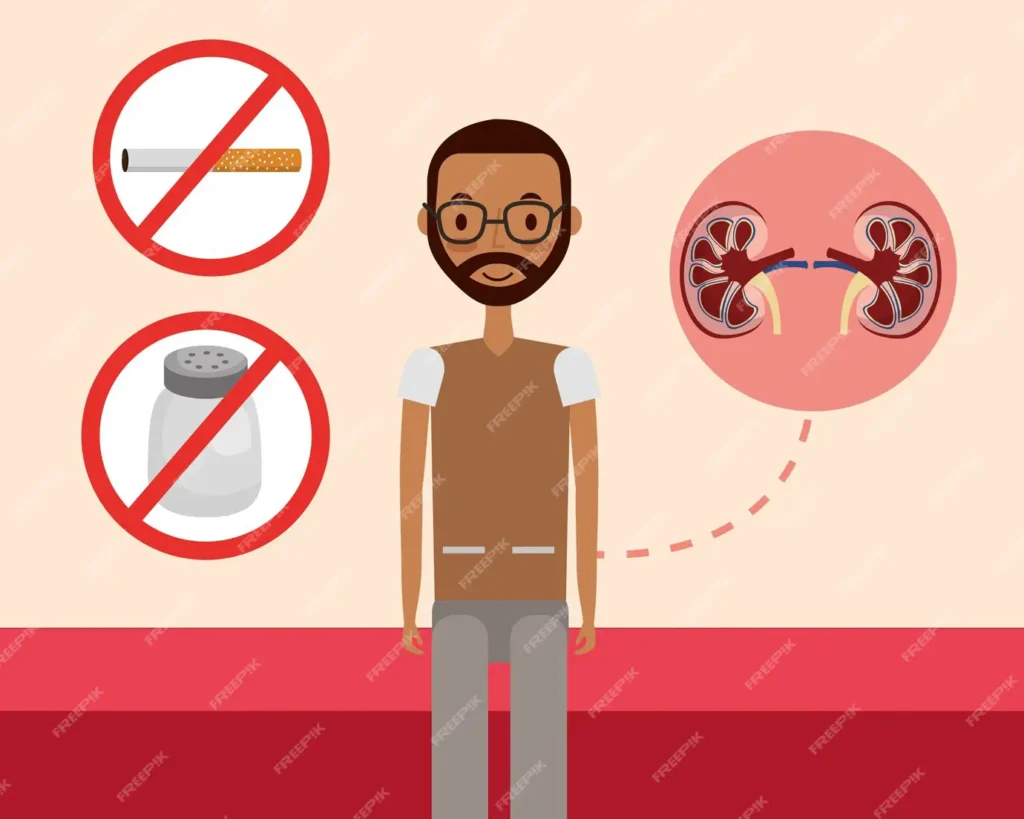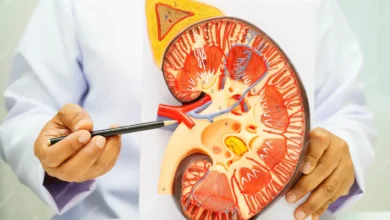Is Your Kidney Disease Getting Worse? 7 Warning Signs You Shouldn’t Ignore!
As the saying goes, “What you don’t know won’t hurt you.” This may be true for many situations in life, but health, in particular kidney health, is not one of them, especially in this case. Our kidneys are commonly called the unsung heroes of the body because they work hard to filter waste and balance fluids while we stay busy with life. However, many of us may not know that this organ can start signaling before a crisis silently and discreetly.
Specific symptoms, if ignored, can cause grave complications in the future. This article will discuss seven warning signs indicating your kidney disease may worsen. If you are living with chronic kidney disease or want to learn more about your kidneys, recognizing these indicators will significantly assist you in improving your health. Don’t wait for a point of no return— continue reading so you can actively manage your kidneys and take control of your health.

An Overview of Kidney Disease
Kidney disease can easily be considered a stealth-mode enemy. A lot of patients are unaware that they’re dealing with it until they start showing some signs or have complications.
The kidneys are essential because they filter waste and help balance bodily fluids. Understanding the intricacies of kidney disease is critical for timely intervention and proper control. Any deterioration can pose serious health risks.
Are you mindful of caring for your kidney? This article outlines the potential warning signs and risk factors of health deterioration in detail, along with the causes and stages of the disease. Staying informed is vital for a healthy life. Would you like to explore this subject with me?
Kidney Disease Precursors and Risk Factors
Like any other disease, kidney disease too has myriad provoking causes. From a lifestyle standpoint, diabetes and high blood pressure are significant contributors.
Age is also a risk factor since people beyond 60 carry this added risk. Personal family history also increases susceptibility to this problem, making genetics an essential factor to track.
If associated with obesity, this shouldn’t be surprising. Sooner or later, excess weight will undoubtedly place stress on the kidneys, resulting in some dysfunction. In addition, other lifestyle choices, such as smoking and high-volume alcohol consumption, will exacerbate the issues even further.
A few treatments also have some risks. NSAIDs and some other types of antibiotics, if not taken correctly, could damage the kidneys over time. Knowing these factors helps one be proactive and take steps to improve one’s kidney health.
Understanding The Stages of Kidney Disease
There are five stages of kidney disease, and a certain level of kidney function characterizes each.
- Stage 1: Kidney function is normal or mildly diminished in stage one, with no apparent signs or symptoms. However, some damage is detectable by laboratory tests.
- Stage 2: Patients may still feel fine during stage two, but it is essential to start actively monitoring one’s health.
- Stage 3: Moderate impairment is noticeable in stage 3. As the kidneys become less able to filter out waste substances, fatigue and swelling can often present.
- Stage 4: Stage four indicates a severe reduction in kidney function along with an increased risk for complications. At this stage, patients must manage their health very carefully to avoid further deterioration.
- Stage 5: Finally, step five indicates end-stage renal failure, where patients require either dialysis or a transplant to remain alive. Understanding these stages helps the patients to better self-manage their renal health.
7 Alarming Symptoms That Indicate Progression of Kidney Disease
Swelling of the feet, face, and ankles could indicate a decline in kidney health. This is because of the kidneys’ capability to filter fluids.
Look for changes in the frequency of urination. Both frequent and infrequent urination need further exploration.
Feeling drained could mean that the toxins accumulating in the body are too much for the kidneys to handle, which are failing to filter properly. This leads to superior fatigue and other weak-like feelings.
Lingering lower back pain might be related to a worsening kidney condition. If you’ve been experiencing this problem for a while, do not ignore it and consult a doctor.
Like many other problems, fatigue and a lack of motivation to eat can direly affect a person’s health.
Watch for bizarre skin rashes or itching. Poor kidney function can lead to the build-up of toxins that affect the skin.
Lastly, pay close attention to high blood pressure readings that become difficult to control despite treatment attempts. This could indicate advancing kidney problems that need to be addressed.
- Concluding Remarks
Kidney disease affects millions of people around the world. Many of them are entirely unaware. As with many other health issues, the most alarming factor is that symptoms only appear after significant damage has already been inflicted on the body.
Averting any and all issues that can cause chronic kidney disease, including high blood pressure and diabetes, is necessary. This is why exercising and maintaining a healthy diet are crucial, as diabetes and high blood pressure can be prevented.
If you are not currently suffering from CKD, visiting your doctor once a year for a checkup is a good idea. Basic examinations, such as urine or blood tests, can identify possible problems before they become complex.

Need for Periodic Medical Checkups.
Which one of us can genuinely claim to be considerate of our organs’ health? Well, in more specific terms, how do you take care of your kidneys? They are essentially the body’s filters that require the utmost attention for proper functionality. This piece covers the risk factors, underlying causes, disease progression, and health decline markers in one place. To remain healthy, one must be educated on these types of matters. Would you like to explore this together?
Timely detection of changes ensures appropriate measures are taken, and these measures can preserve kidney function for longer. Many individuals afflicted with chronic kidney disease are completely asymptomatic and may only present once the illness is significantly advanced.
With each visit, blood work and urine tests for cystatin C screen for complications or exacerbating factors. Taking the initiative positively influences your health and gives you control over your provider for better-informed options.
Regular follow-ups may also focus on other issues that can enhance health. Dietary and exercise prescriptions are adjuncts to the management of kidney disease.
Regular interactions with your provider ensure prompt action toward any emerging issues, thus reducing the burden of other complications associated with kidney disease.
Strategies That May Be Useful In Improving Kidney Health
Your hydration status should be the beginning consideration since hydration must be maintained consistently. Adequate amounts of water aid in kidney waste clearance and infection prevention.
A supportive diet is equally important. Increase fresh vegetables, fruits, whole grains, and lean protein while decreasing salt and processed foods.
This helps increase kidney function and overall health.
Regular exercise can also impact kidney health. To maintain a healthy weight and blood pressure, you should strive to be physically active for 30 minutes on most days of the week.
You need to pay attention to medications as well. Changes to prescriptions or any over-the-counter medicines that may affect the kidneys need to be discussed with a healthcare professional.
Managing stress is vital; starting yoga or meditation can help support kidney function. The body under stress will not function well, while a calm body will enhance general health.
Treatment Options for Advanced Kidney Disease
Patients in the later stages of kidney disease have a vital decision to make regarding their care as treatment options become more limited.
Patients with kidney failure commonly choose dialysis. This process aids in filtering blood during the latter stages of a patient’s kidney function. There are two primary forms: hemodialysis and peritoneal dialysis.
A kidney transplant provides a new option for many patients. A suitable donor can fully restore kidney function and significantly improve quality of life.
Medications may help with kidney disease management through symptom relief and treating coexisting hypertension or diabetes.
Furthermore, changes to an individual’s lifestyle are beneficial treatment interventions even in the later stages of the disease. A well-balanced diet and exercise improve health and support treatment.

Conclusion: Claiming Responsibility for Your Kidney Health
Understanding the anatomy and physiology of one’s body, particularly the kidneys, is essential if one wishes to lead a healthy life. Awareness of the signs that may indicate the progress of one’s kidney disease brings a sense of control over the health issues. Besides paying attention to alert signs, regular medical examinations build the foundation for early detection of potential problems.
Lifestyle changes such as good nutrition and appropriate physical exercise are necessary to promote health and assist kidney health. Discussing treatment alternatives with doctors guarantees that the disease will not lapse into a forgotten stage.
Seizing control implies being proactive, informed, and taking action regarding one’s health. As vital organs, kidneys require protection daily. Kidney disease and overall well-being can be managed and improved with adequate information and support.

